Co-operation Between India and African Countries to Strengthen the Global South
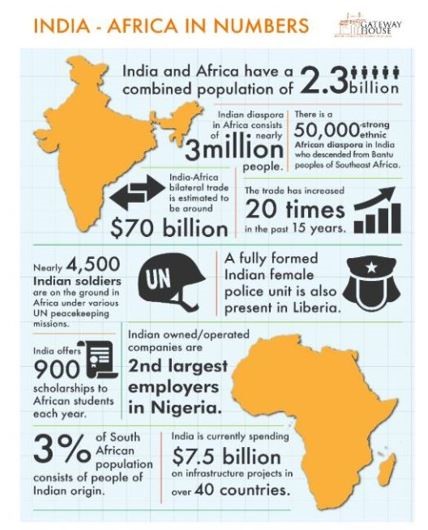
Context
- Bilateral trade is valued at $3.3 billion with Indian exports making up a significant part of the figure, while Indian investments in Kenya were worth $3.2 billion.
Key Details:
- India’s first prime minister, Jawaharlal Nehru, termed Africa as India’s “sister continent,” in recognition of the long ties of affinity. Since the 1960s, India’s prime ministers have visited Africa 76 times, a level of engagement unmatched by Africa’s other external partners.
- Between 2015 and 2022, New Delhi received over 100 African leaders, while each African country received an Indian cabinet minister.
- Indo-African ties cover culture, education, trade, technical cooperation, energy, agriculture, maritime security, peacekeeping, and professional military education.
- India also builds capacity for good governance through institutions like the India International Institute of Democracy and Election Management, which has trained hundreds of African and Asian stakeholders.
- To better understand this important yet underlooked relationship, the Africa Center for Strategic Studies spoke to several Indian and African experts for their insights.
Facts:
| India-Africa trade has grown 18 percent annually since 2003, reaching $103 billion in 2023. This makes India Africa’s third largest trading partner after the European Union and China. |
- The India-Africa Forum Summit is planned for 2024. In January 2023, 47 African countries attended the Voice of the Global South Summit.
- In June 2023, African and Indian government, private sector, and industry leaders converged in New Delhi for the 18th India-Africa Conclave hosted by the India Export Import (EXIM) Bank in partnership with India’s foreign and trade ministries.
INTRODUCTION
|
India is also the second largest lender in Africa, with strong public-private partnerships and safeguards protecting borrowers from debt distress.
Most Indian aid is channeled through the African Development Bank (ADB), which New Delhi joined in 1983.
India’s total investments in Africa amount to $70 billion, a figure the powerful Confederation of Indian Industry aims to increase to $150 billion by 2030.
|
- Historical and Diplomatic Ties:
- India and many African nations share a history of anti-colonial struggles and solidarity.
- India supported African nations in their quest for independence, and this historical connection has laid the foundation for diplomatic ties.
- Economic Cooperation:
- Economic cooperation between India and Africa has been growing steadily.
- India has engaged in trade, investments, and development projects across the African continent.
- Sectors such as agriculture, infrastructure, healthcare, and technology have been focal points of economic collaboration.
- Development Assistance:
- India has provided development assistance to several African countries through lines of credit, grants, and capacity-building programs.
- The Indian Technical and Economic Cooperation (ITEC) program offers training and skill development to professionals from African nations.
- Health Cooperation:
- India has played a significant role in supporting healthcare initiatives in African countries.
- Indian pharmaceutical companies supply affordable generic medicines, and India has been actively involved in addressing diseases like HIV/AIDS, malaria, and Ebola.
- Defence Engagement:
- India and African countries have engaged in defense cooperation, including the signing of the Memoranda of Understanding (MoUs) and the hosting of the India-Africa Defence Dialogue.
- Joint exercises and maritime cooperation underline the growing importance of defense ties.
- Technology and Digital Collaboration:
- India has undertaken initiatives like the Pan African e-Network Project to provide satellite connectivity, telemedicine, and tele-education to African nations.
- The focus on technology and digital cooperation aims to bridge the digital divide and enhance educational opportunities.
- Multilateral Engagement:
- Both India and African countries collaborate in various international forums, including the United Nations, where they often align their positions on global issues.
- People-to-People Ties:
- Cultural exchanges, educational scholarships, and people-to-people ties have contributed to a deeper understanding and appreciation of each other's cultures.
- Importance of Africa for India:
- Africa is considered a vital partner for India due to its economic growth, resource richness, and strategic importance.
- India seeks to diversify its sources of raw materials, energy, and markets, and Africa offers significant potential in these areas.
Achievements of India-Africa Relations:
Economic Cooperation:
Untapped Market Potential:
- Africa presents a vast untapped market for Indian businesses, including textiles, pharmaceuticals, automobiles, and light machinery.
- From 2011–2022, India's total goods trade with Africa increased from USD 68.54 billion to USD 90.52 billion.
- In 2022, India achieved a positive trade balance with Africa for the first time.
Development Assistance:
ITEC Program:
- The Indian Technical and Economic Cooperation (ITEC) program offers training and capacity-building programs to African professionals.
- India extends lines of credit and grants for infrastructure projects, agricultural development, and capacity building.
Health Collaboration:
Affordable Medicines:
- Indian pharmaceutical companies provide affordable generic medicines to African countries, contributing to improved healthcare access.
- India deploys medical teams and offers technical assistance to combat diseases like HIV/AIDS, malaria, and Ebola.
Defense Cooperation:
MoUs and Defence Dialogue:
- India has signed MoUs with all African nations on the Indian Ocean Rim (IOR), showcasing increased defense engagement.
- India-Africa Defence Dialogue (IADD) at the defense ministers’ level underlines growing defense collaboration.
- Trilateral Maritime Exercise with Tanzania and Mozambique in 2022 enhances maritime cooperation.
Technology and Digital Cooperation:
Pan African e-Network Project:
- Initiated in 2009, India set up a fiber-optic network for satellite connectivity, telemedicine, and tele-education in African countries.
- The subsequent phase, e-VidyaBharti, and e-ArogyaBharti (e-VBAB), introduced in 2019, focuses on free tele-education and medical education.
Importance of Africa for India:
Economic Growth Poles:
- Africa is home to some of the fastest-growing countries, making it a growth pole globally.
- Real GDP in Africa and Sub-Saharan Africa has grown at a rate twice that of the 1980s and 90s.
Population and Market Potential:
- Africa's population exceeds one billion, with a combined GDP of 2.5 trillion dollars, making it a significant potential market for India.
Resource Rich Continent:
- Africa is rich in crucial resources like crude oil, gas, pulses, lentils, leather, gold, platinum, chromium, and uranium.
Diversification of Oil Supplies:
- India seeks diversification of its oil supplies, and Africa, with its resource abundance, can play a crucial role in India's energy matrix.
Closing thoughts
- India-Africa relations have witnessed notable achievements across economic, developmental, health, defense, and technological dimensions. Recognizing Africa's economic growth, resource richness, and strategic importance, India's multifaceted engagement demonstrates a commitment to mutual development and collaboration.
https://africacenter.org/spotlight/africa-india-cooperation-benchmark-partnership/
https://infra.economictimes.indiatimes.com/news/railways/northern-railways-helps-maruti-export-jimny-cars-to-african-countries/107098065
https://african.business/2023/10/trade-investment/modis-mission-africa-ties-targeted-in-indias-superpower-quest
https://www.thehindu.com/opinion/lead/indias-g-20-opportunity-for-an-african-renaissance/article67232034.ece
https://newsonair.gov.in/News?title=India-is-committed-to-deepening-relations-with-African-countries-in-the-field-of-trade-and-technology%3A-Union-Minister-Piyush-Goyal&id=462606

Coal India Limited (CIL)
Context
- The Government has approved that Coal India Limited (CIL) will set up two Coal Gasification Plants with a view to achieving the target of 100 MT coal gasification by the year 2030 and to fulfill India’s dual objectives of self-reliance and energy independence.
.jpg)
Key Details:
- Briefing media after the Union Cabinet meeting, Union Minister for Coal Pralhad Joshi said that total investment in the joint venture of CIL and GAIL for the proposed Coal-to-Synthetic Natural Gas at Sonepur Bazari Area of Eastern Coalfields Limited in West Bengal will be of 13 thousand 52 crore rupees.
- Mr Joshi informed that for CIL and BHEL Joint Venture for the proposed Coal-to-Ammonium Nitrate at Mahanadi Coalfields Limited in Jharsuguda district of Odisha will be 11 thousand 782 crore rupees. He informed me that by 2028 - 29 these projects will be operationalised.
About Coal India Limited (CIL):
|
Introduction
|
- Coal India Limited (CIL) is a state-owned coal mining company in India.
- It is the largest coal producer company in the world and contributes significantly to India's energy sector.
|
|
Formation
|
- CIL was formed as a holding company to manage the coal mines efficiently.
- It was established in 1975 as a result of the nationalization of coal mines in India.
|
|
Subsidiaries
|
- CIL operates through its subsidiaries, which are the various coal-producing companies.
- Some major subsidiaries include Eastern Coalfields Limited (ECL), Bharat Coking Coal Limited (BCCL), and South Eastern Coalfields Limited (SECL).
|
|
Headquarters
|
- The headquarters of Coal India Limited is located in Kolkata, West Bengal, India.
|
|
Role and Function
|
- CIL plays a crucial role in the coal sector, overseeing coal production, exploration, and marketing.
- It is involved in the planning and development of coal resources and ensures the supply of coal to various sectors like power, steel, and other industries.
|
https://newsonair.gov.in/News?title=Cabinet-approves-setting-up-of-two-coal-gasification-plants-in-West-Bengal-and-Odisha-with-a-target-of-100-metric-ton-coal-gasification-by-2028-29&id=475885
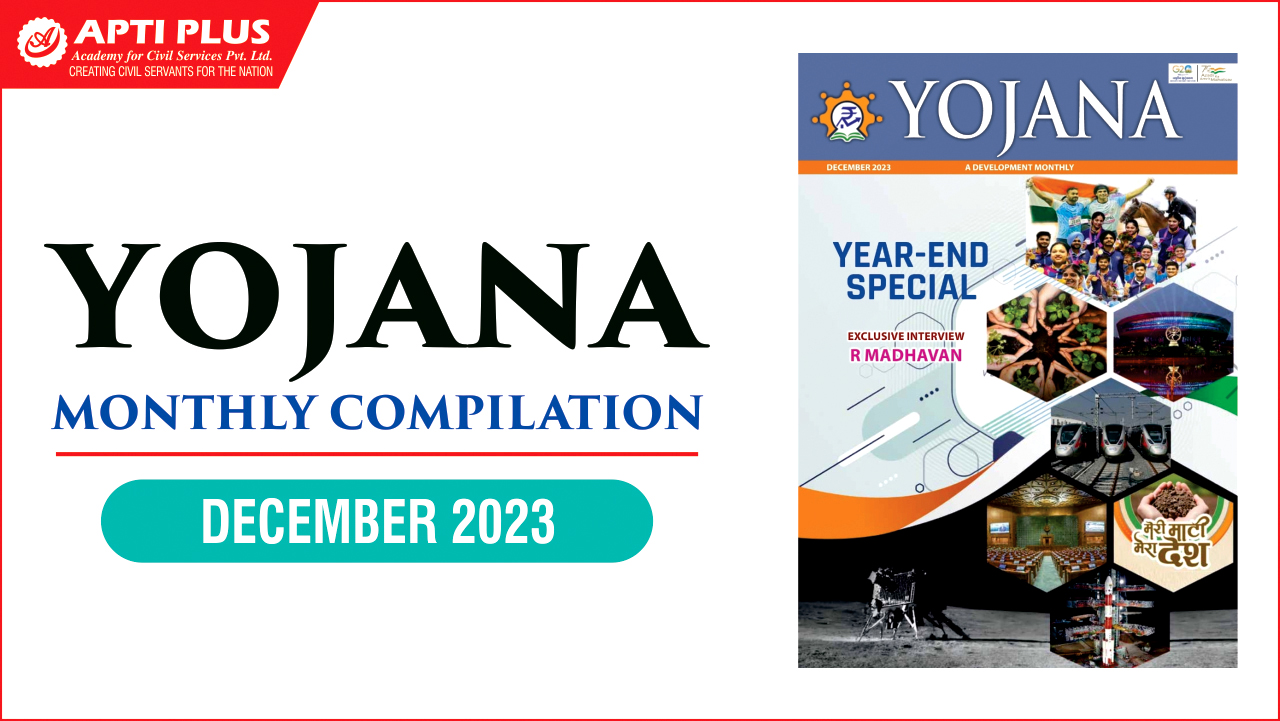
Interim Union Budget 2024
Context
- The Halwa ceremony marking the final stage of the Budget preparation process for Interim Union Budget 2024, was held in North Block today.
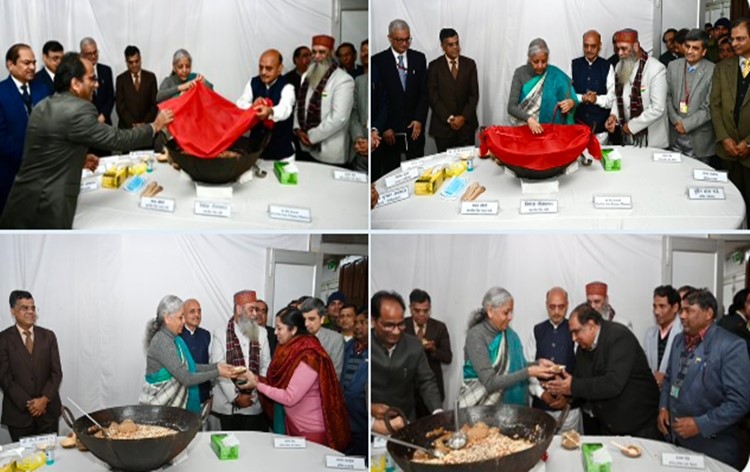
Disclaimer: Copyright infringement is not intended
Details:
- The Finance Ministry said, a customary Halwa ceremony is performed every year before the lock-in process of Budget preparation begins.
- Union Finance Minister Nirmala Sitharaman, Minister of State for Finance Dr. Bhagwat Kisanrao Karad, and other senior officials were present on the occasion.
- As part of the ceremony, Ms Sitharaman also took a round of the Budget Press and reviewed the preparations, besides extending her best wishes to the officials concerned.
Nature and Content:
- Interim Budget: It generally includes a comprehensive overview of the current state of the economy, plan and non-plan expenditures and receipts, changes in tax rates, revised estimates for the ongoing financial year, and estimates for the coming financial year. It can propose changes in the tax regime.
- Vote-on-account: It is specifically focused on obtaining parliamentary approval to withdraw money from the Consolidated Fund of India to meet essential expenditures such as salaries of central government staff, funding of ongoing projects, and other necessary government expenditures. It does not typically involve major policy announcements or changes in the tax regime.
https://newsonair.gov.in/News?title=Final-stage-of-preparations-for-Interim-Union-Budget-2024-commences-with-Halwa-Ceremony-in-North-Block&id=475902
75th Republic Day
Context
- President Droupadi Murmu will address the nation tomorrow on the eve of the 75th Republic Day.
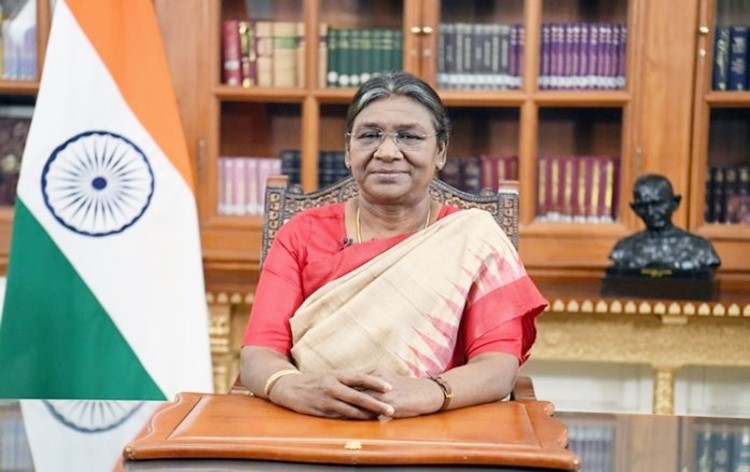
Details
- The address will be broadcast from 7 PM on the entire national network of Akashvani and telecast over all channels of Doordarshan in Hindi followed by the English version.
- Broadcast of the address in Hindi and English on Doordarshan will be followed by broadcast in regional languages by regional channels of Doordarshan. Akashvani will broadcast regional language versions from 9.30 PM on its regional networks.
About the 75th Republic Day of India 2024:
|
About
|
- India celebrates its 75th Republic Day on January 26, 2024, marking a significant milestone in the nation's history.
|
|
Special Themes
|
- The themes for the 75th Republic Day are 'Viksit Bharat' (Developed India) and 'Bharat – Loktantra ki Matruka' (India – Mother of Democracy).
- These themes align with Prime Minister Shri Narendra Modi's vision of India as a mother of democracy.
|
|
Grand Celebrations
|
- The event promises to be an extra special affair, with grand celebrations planned to highlight the country's progress, democracy, and cultural heritage.
|
|
Tableaux Presentation
|
- Various states and government departments will present tableaux reflecting the themes of 'Viksit Bharat' and 'Bharat – Loktantra ki Matruka.'
- These tableaux will showcase India's advancements in technology, infrastructure, and its rich cultural heritage.
|
|
Reflection of Progress
|
- The chosen themes symbolize India's journey towards development and its integral role as a thriving democracy.
- The celebrations aim to reflect the strides made by the country in various sectors.
|
https://newsonair.gov.in/News?title=President-Droupadi-Murmu-to-address-the-nation-tomorrow-on-the-eve-of-75th-Republic-Day&id=475871
.jpg)
100th birth anniversary programme of Karpoori Thakur
Context
- Union Home Minister Amit Shah has said that the decision taken by the Narendra Modi Government to confer the Bharat Ratna on former Bihar Chief Minister Karpoori Thakur is not only an honor to the Jan Nayak but also an honor to 70 crore poor people of the country.
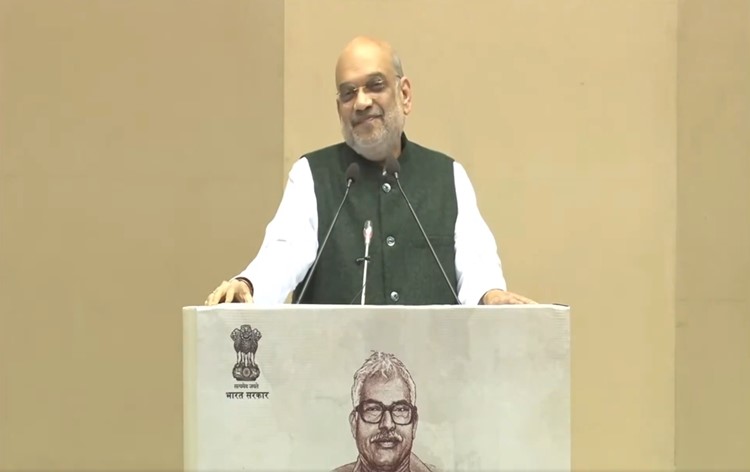
Details:
- Shah was addressing an event organized to commemorate the 100th birth anniversary of Karpoori Thakur in New Delhi. Mr. Shah said that by awarding Bharat Ratna to Karpoori Thakur, Prime Minister Narendra Modi has done the work of honoring the basic mantra of the Indian Constitution of justice and equal rights for all.
- On January 23, the Indian government made a significant announcement, posthumously awarding the Bharat Ratna, India’s highest civilian honor, to Karpoori Thakur, the former chief minister of Bihar.
- Thakur, affectionately known as ‘Jannayak’ or the leader of the people, leaves behind a legacy of enduring policy decisions that continue to shape Bihar and the nation.
About Karpoori Thakur:
|
A Leader of Contrasts
|
- Thakur, born on January 24, 1924, in Bihar, emerged as the foremost backward caste leader in the state, despite hailing from the minority nai (barber) caste.
|
|
Political Activism
|
- He actively participated in the freedom struggle, enduring imprisonment for his convictions.
|
|
Decades of Public Service
|
- Thakur served as an MLA from 1952 until his passing in 1988, except for a brief period when he became an MP in 1977.
|
|
Respected Clean Image
|
- Despite holding public office for three decades, Thakur maintained a clean image and refrained from personal enrichment through government resources.
|
https://newsonair.gov.in/News?title=UM-Amit-Shah-addresses-the-100th-birth-anniversary-programme-of-Karpoori-Thakur-in-New-Delhi&id=475890





.jpg)


